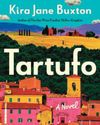
When crafting characters for your novel, names are vital to the authenticity of the world and can enhance and heighten a reader's experience and understanding of the plot, especially the undercurrent of symbolism and thematic tension. Each name, when decided upon, should emanate a harmonic hum to let the author know it is the only name for this person, at this time, in this specific world. This includes secondary characters, all the way to the generic layer of people your protagonist will encounter to ensure consistency.
If not, the names can appear arbitrary or grasped at, as if taken from the nearest thing in proximity to the author-like a book or cereal box or the name of your favorite barista!
DRAW ON THE UNIQUENESS OF YOUR WORLD
Writing my very first novel, I thought it was very clever to name my main character after a famous actress and to weave in traits from her iconic role into the storyline. A classic movie, it allowed me to create a generational connection between a mother and daughter. In reality, though, it took up a lot of space in the opening chapter and ultimately did more to show the likes and interests of the author behind the scenes, rather than the people inhabiting this unique world.
After spending more time reflecting on the story's core distinctions, which were centered on monastic art, not Hollywood, the perfect name revealed itself.
Denne historien er fra March - April 2024-utgaven av Writer’s Digest.
Start din 7-dagers gratis prøveperiode på Magzter GOLD for å få tilgang til tusenvis av utvalgte premiumhistorier og 9000+ magasiner og aviser.
Allerede abonnent ? Logg på
Denne historien er fra March - April 2024-utgaven av Writer’s Digest.
Start din 7-dagers gratis prøveperiode på Magzter GOLD for å få tilgang til tusenvis av utvalgte premiumhistorier og 9000+ magasiner og aviser.
Allerede abonnent? Logg på

What Is Your Story Question?
Revision and editing advice to take your first draft to the next level.

Writing for the People We Hope to Become
Elisa Stone Leahy's new middle-grade novel, Mallory in Full Color, tackles the in-between moments of adolescence, when who we are and who we want to become collide.

Creating Community
Whether hot off the presses or on the shelves for years, a good book is worth talking about.

Pat Barker
The Booker Prize-winning author of Regeneration shares the role characters play in developing novel ideas and explains what appeals to her about reimagining mythology.

How to Write in Different Genres
Emiko Jean and Yulin Kuang share tips and strategies for how they successfully write in different genres and mediums.

The Shortest Distance Between Two Points
Ten tips for writing a novel with 100-word stories.

Mayfly Marketing
How to sell your novel in a short-attention-span world.

"You'll be a great essay".
How to write six types of personal essays by finding the funny in your life.

The Idea Factory
Tired of staring at an empty screen? Unlock your inner fiction generator with these surprising inspiration techniques.

Seinfeld Was Right: That's a Story
Use mundane moments from everyday life to create stories that pack a punch.